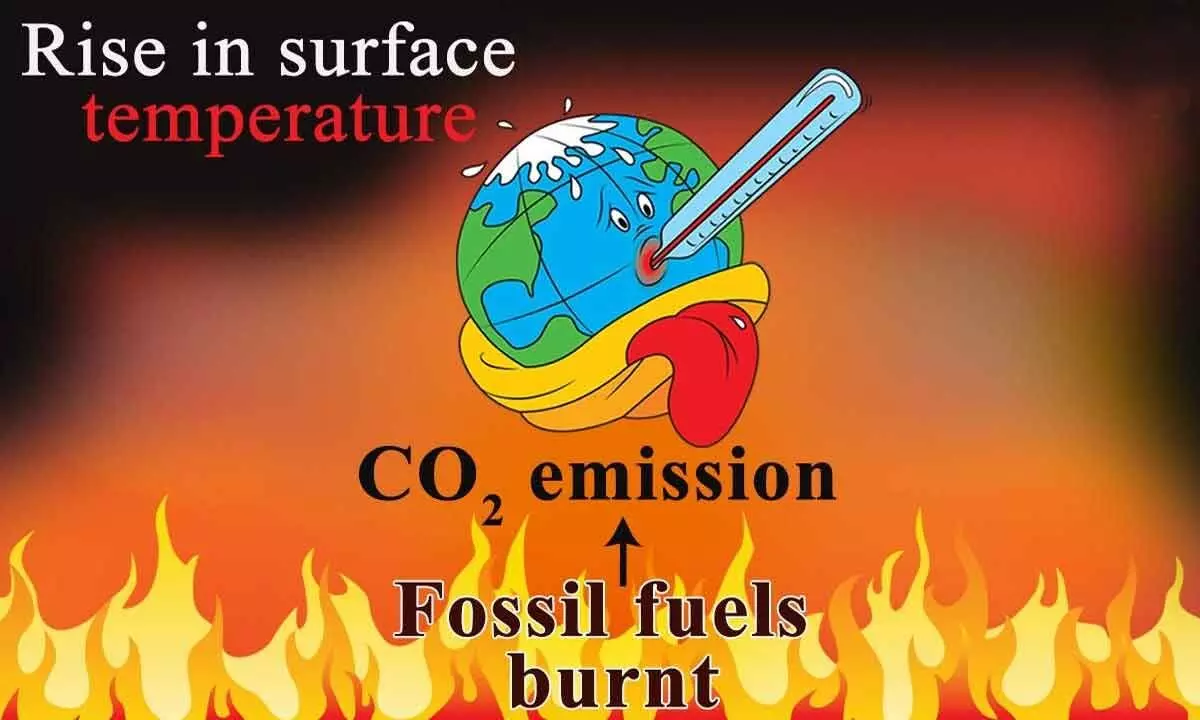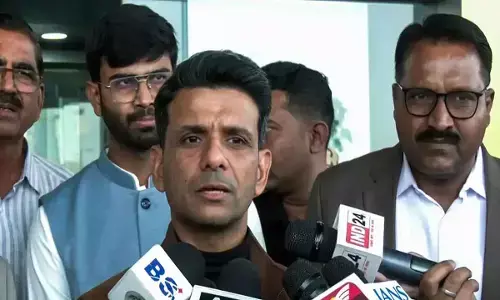Tackling Fossil Fuels: Equitable pact on global fund elusive

If governments are serious about reforming the current global financial system, they need to move to a truly radical transformation that prioritises a global just transition through new development pathways and tackling climate change at the source -- that is, phasing out fossil fuels
The Paris Summit for a New Global Financing Pact -- seen as a stepping stone behind the push to reform the global financial system -- opening on Thursday has the stated aim of “laying the foundations for a new system that will meet our common challenges: tackling inequality, climate change and protecting biodiversity”. The global financial architecture reform is supposed to make it fit to address the climate crisis and development challenges.
However, fossil fuel production is not part of the agenda whereas the role of coal, oil and gas in the global economy is decisive.
Rebecca Byrnes, Deputy Director of the Fossil Fuel Non-Proliferation Treaty, said: “If governments are serious about reforming the current global financial system, they need to move to a truly radical transformation that prioritises a global just transition through new development pathways and tackling climate change at the source -- that is, phasing out fossil fuels.
“The New Global Financing Pact Summit must shift the finance from the industries most responsible for our climate and inequality crises, and commit to mobilising the trillion of new, grant-based financing needed. A Fossil Fuel Non-Proliferation Treaty is the missing legal mechanism that can incentive and enforce the finance needed for a just transition away from destructive fossil fuel production.”
Harjeet Singh, Global Engagement Director at the Fossil Fuel Non-Proliferation Treaty, said: “Calls to reform the World Bank and the IMF are becoming ever more urgent and ambitious as this global financial system, established by Global North countries and primarily based on fossil fuel production, has proven to serve only their interests.
“Faced with the climate and development gaps that divide up our world a little more every day, it is crucial to revert the global financial architecture and make polluters pay for the damages they have been causing for decades. It is not about charity nor solidarity. It is about climate justice and that’s what the Fossil Fuel Treaty is all about: breaking our dependence on fossil fuel production through a fair and sustainable financial system.”
The Paris Summit will be a first step to build momentum towards a global financial transformation at key international governance gatherings where decisions will be taken, such as the G20 Summit in India, and the COP28 conference in Dubai.
The Fossil Fuel Non-Proliferation Treaty Initiative is spurring international cooperation to end new development of fossil fuels, phase out existing production within the agreed climate limit of 1.5 degrees Celsius and develop plans to support workers, communities and countries dependent on fossil fuels to create secure and healthy livelihoods.
A new analysis which applies sustainability limits and minimises the need for carbon dioxide removal (CDR) finds new wind and solar needs to be installed five times faster by 2030 at a rate of 1.5 TW a year to limit global warming to 1.5 degrees Celsius.
Global wind and solar capacity needs to increase to around 10 TW by the end of this decade, up from 2 TW in 2022. This is achievable if the recent acceleration in capacity additions is maintained.
“Everyone from the EU to the COP Presidency is calling for a global renewables target, but this must be based on the safest route to net zero. We’ve shown that if the world accelerates new wind and solar fivefold to at least 1.5 TW a year by 2030 while cutting fossil use by 40 per cent, we won’t have to rely on potentially unsustainable amounts of carbon dioxide removal in the future,” says Claire Fyson, Head of Policy at Climate Analytics.
The study distils key milestones the international community needs to meet by 2030 to keep warming below 1.5 degrees, including rapidly scaling up renewables this decade to 70 per cent of the global power mix, cutting greenhouse gas emissions by 8 per cent a year to halve global emissions by 2030, and a 34 per cent cut to global methane emissions over this critical decade for climate action.
The recently held Bonn climate talks just closed with widespread disappointment at the slow pace of progress in the past two weeks, rich counties failed to deliver promised and required assistance to poor and the UN Secretary-General Antonio Guterres, is right when he sums up the current situation: “Yet the collective response remains pitiful.”
Fourteen years on and the $100 billion climate fund proposed has yet to be implemented. Developing countries had scaled up talks on the climate fund at the Bonn conference because they were tired of the false promises.
Campaigners used Bonn to call for a fossil fuel phase out deal at COP28. Youth climate activists such as Eric Njuguna and Greta Thunberg said keeping to 1.5 degrees Celsius was only possible with a fossil fuel phase out deal and the ramping up of renewables.








